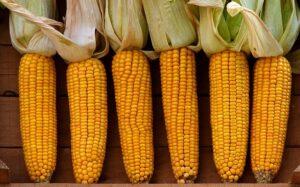GOSZ-VSZT-NAK helps corn producers choose the best hybrids for them again
In 2024, the performance of a total of 40 corn hybrids was tested at 9 points in the country in the national corn post-registration variety trial of the National Grain Growers’ Association (GOSZ), the Seed Association Interprofessional Organization and Product Council (VSZT), and the National Chamber of Agriculture (NAK). GOSZ-VSZT-NAK has been helping corn producers with objective experimental data for 18 years.

(Photo: Pixabay)
The first step in laying the foundation for a successful agricultural season is choosing the right variety. The National Grain Growers’ Association (GOSZ), the Seed Association Interprofessional Organization and Product Council (VSZT), and the National Chamber of Agriculture (NAK) have been providing farmers with useful, objective help in this regard for 18 years. The supervision of the experiments and the tasks related to the implementation are performed by the Varieties Trial Innovation Council (FIT).
In the 2024 maize variety experiment, 40 hybrids belonging to the FAO 200, 300, 400 and 500 maturity groups from ten variety owners were tested
The hybrids were coded before sowing, so the experimenters and evaluators could completely independent themselves from any circumstances that could have unintentionally influenced their work. The experiments were set up at 9 locations: Bóly, Gyulatanya (irrigated), Hajdúböszörmény, Iregszemcse, Kisbábolna (irrigated), Murony, Püski (irrigated), Szeged and Szombathely. The experimental locations are expanded year by year so that data from all regions of the country can be received in the experiment. The evaluation was carried out by the VSZT after the data from all the locations had been received. The Szeged experiment was damaged by a severe drought similar to the previous year, as a result of which the entire experiment was excluded. The very early ripening group in Püski was also not included in the evaluation due to storm damage. “Due to climate change, weather extremes have become increasingly frequent, and stress situations have increased, which affect all agricultural entrepreneurs. The strategically important corn segment is perhaps feeling the changes the most, and in recent years, the successful cultivation of the crop has been a great challenge in several areas of the country. Our national variety experiment has been helping producers with objective information for the 18th year and providing breeders with feedback on the performance of their varieties. During this time, we have tested almost 700 corn hybrids on more than 30 thousand experimental plots. We are also continuously developing the methodology of the experiments, the issue of irrigation has been on the agenda for many, many years, so since 2022 we have been testing hybrids under irrigated conditions, explained Géza Takács, President of the Interprofessional Organization and Product Council of the Seed Association. Zsolt Papp, President of the National Chamber of Agriculture (NAK), said: the public body joined the post-registration experiments operated by the GOSZ and VSZT in 2018. Based on these, the NAK – under legal authorization – compiles a list of recommended varieties, thereby contributing to the effective farming of its members and improving their competitiveness. In order for the experimental results to reach as many farmers as possible, the most important indicators of the hybrids are also published in the NAK magazine. According to Tamás Petőházi, president of the Hungarian Grain Growers’ Association (GOSZ), the most important goal of the post-registration experiment is to provide farmers with the knowledge that will help them choose the best hybrid. This is also served by the fact that the experiment is being set up in different parts of the country, so that every farmer can learn what results each corn hybrid has achieved in the areas closest to their own growing conditions.
The GOSZ-NAK-VSZT national corn variety experiments will continue in 2025
The winter wheat variety experiment has been ongoing at 8 locations since last fall, and the winter rapeseed variety experiment at 6 locations. The evaluation of the latter is expected in the summer after the harvest and data processing.
NAK
Related news
NAK President: more than 120 thousand people signed the agricultural petition in one month
🎧 Hallgasd a cikket: Lejátszás Szünet Folytatás Leállítás Nyelv: Auto…
Read more >Milk and dairy product prices decreased at the beginning of the year in Hungary
🎧 Hallgasd a cikket: Lejátszás Szünet Folytatás Leállítás Nyelv: Auto…
Read more >Related news
GDP growth in OECD member countries slowed to 0.3 percent in the last quarter of last year
🎧 Hallgasd a cikket: Lejátszás Szünet Folytatás Leállítás Nyelv: Auto…
Read more >









